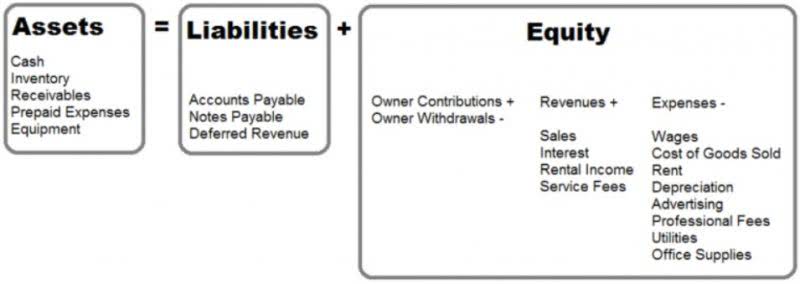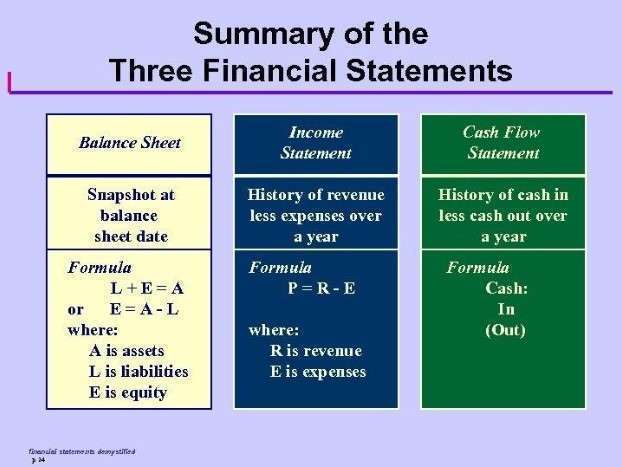Working from our review, we’ll provide clear and actionable recommendations for improvement related to your particular processes, software, and systems. Get clarity and transparency for a thorough understanding of all donor activity. Learn all the best practices of CRMs to simplify customer relationship management and elevate your bond with loyal customers.
Managing Donors in Nonprofit Accounting

Then, plan out how you’ll spend your income in a way that achieves those goals. Whether you decide to outsource both your bookkeeping and accounting services or just one, you can be confident that we’ll provide professional services designed to meet your nonprofit’s specific needs. Outsourced accounting services offer flexible solutions that scale with your organization, allowing you to adjust services as funding or program demands shift. Outsourcing accounting services allows organizations to save on payroll and benefit costs by avoiding the need for a full-time in-house accounting department. To learn more about the 3 key benefits to outsourcing your booking and accounting for nonprofit organizations, click here. At Lescault and Walderman we have outsourced accounting services for nonprofits that can assist with cash flow challenges.
Client Resources
- Income statements, statements of owner’s equity, and balance sheets are prepared and analyzed using basic financial ratios.
- These systems handle recurring donations, matching gifts, and varying restriction levels.
- The difference between the balance sheet and the statement of financial position is that, because nonprofits don’t technically have any owners, the statement of financial position doesn’t have any equity on it.
- By following GAAP in your accounting practices, you build trust with donors and stakeholders, offering them clear insights into how funds are being used to support your mission.
- The provider should offer services that cover all your needs, from basic bookkeeping to complex tasks like grant tracking and tax preparation, and they should be using modern accounting tools.
- Discover how Jitasa’s accounting services can benefit your Sacramento, California-based nonprofit.
For instance, mental health nonprofits often have high administrative costs because of licensing and compliance requirements. A small nonprofit might need to spend more on overhead costs to build a strong foundation. Whereas your type of work might need more administrative support than others. Common mistakes include using restricted funds for the wrong target="_blank">Keep Records for Small Business purpose or forgetting to “release” funds from restriction when you’ve met the requirements.

ACCT 499 Experimental Offering in Accounting
You might start by reconciling every time you receive a bank statement (usually once a month), then schedule additional time as the size and quantity of your transactions grow. Not only does John work extensively with nonprofits professionally, he also volunteers in various capacities with several local organizations. Through this service, John has gained additional insights and perspectives that he applies when serving his clients.
- Most guides either oversimplify nonprofit accounting or bury the important financial information under technical jargon.
- Your nonprofit also needs to produce specialized financial reports, such as statements of activities, to show how funds are used to support its mission.
- Financial staff must translate complex nonprofit accounting concepts into clear, actionable information without oversimplifying critical details.
- Some are unrestricted net assets and some are considered restricted net assets.
- Then, plan out how you’ll spend your income in a way that achieves those goals.
- Quality internal audits and audited financial statements aren’t cheap, but they’re worth it.
Make your financial policies public and explain complex financial matters in simple terms. For instance, government grants demand specific reporting formats and deadlines, while foundation grants might operate on different fiscal years. Likewise, individual donations come with their complexity and varying restrictions. For instance, a low program expense ratio might mean you’re investing in technology that will improve efficiency later. Likewise, high fundraising costs may be justifiable if you build a donor base from scratch. For example, New York and California have detailed reporting requirements, while other states might be more relaxed.

- His work frequently includes assisting nonprofit boards and leadership grasp the complex financial and tax regulations that affect their organizations.
- While both involve tracking revenues and expenses, nonprofit accounting has unique requirements—like categorizing funds as restricted or unrestricted based on donor intentions.
- Emphasis is on the auditing requirements, standards, procedures, and practices used in the verification of governmental accounting records and financial statements.
- Established in 1999, Daily Balance offers comprehensive services, including nonprofit bookkeeping, nonprofit financial audit representation, and virtual CFO advisory services.
- They need an organized system that makes sure purchases are ordered, budgeted for, and fulfilled properly from the get go.
- Working in a nonprofit allows you to quickly learn how to differentiate it from for-profit organizations.
Outsourced accounting services use advanced technology and proven processes to deliver precise financial reports, reducing the target="_blank">QuickBooks risk of errors and providing reliable data for audits or financial reviews. While often used interchangeably, nonprofit accounting and bookkeeping serve different functions. Understanding these differences helps organizations ensure they have the right expertise for their financial management needs.

Bookkeeping Services
Working with nonprofits across Puget Sound region for over 30 years, we offer experience and insight no other accounting firm can match. target="_blank">bookkeeping services in sacramento Nonprofits are generally expected to follow GAAP to maintain compliance, secure funding, and demonstrate financial transparency. A forward-thinking financial strategy helps your organization manage resources wisely, stay financially stable, and take advantage of opportunities to expand your impact. Building a long-term strategic financial plan is key to setting your nonprofit up for future growth and handling unexpected expenses with confidence.
We look at non-profits as small businesses; we provide practical advice for accounting, operations, tax planning, and fund development. Looking up a nonprofit’s Form 990—using services like Guidestar.org—can tell you a lot about its financial state. These financial statements can provide helpful insight into your nonprofit’s financial health so that you can adjust accordingly and plan your next moves. Managing cash flow and staying on budget is a constant challenge for many nonprofits. Outsourced accounting services can help you gain control over your finances by creating adequate budgets and strategies for cash flow management. In-kind donations require special handling in nonprofit accounting systems.
- So, the program managers need accurate cost information to make decisions.
- For example, the table below illustrates how your nonprofit might allocate its expenses across various functions and categories, providing a detailed view of financial priorities and operational efficiency.
- He is registered with the IRS as an Enrolled Agent and specializes in 501(c)(3) and other tax exemption issues.
- While businesses track profits, nonprofits track if they’re achieving their goals.
- The Los Rios Community College District’s policies and practices are consistent with and in compliance with Proposition 209.
- Most nonprofits aim to keep administrative and fundraising costs reasonable while maximizing program spending.
- To learn how a nonprofit board can gain insight and strategic vision from KPI’s, click here.
Emphasis is on the auditing requirements, standards, procedures, and practices used in the verification of governmental accounting records and financial statements. This course continues the study and application of accounting principles and techniques used in preparing and reporting the financial results of business corporations at an intermediate level. Areas of study include cash and cash flows, receivables, inventories, plant and equipment, intangible assets, revenue recognition, long-term construction contracts, and the time value of money. Depending on its registration and activities, these reports ensure compliance with state-specific regulations and enhance transparency around your nonprofit’s financial operations. Also known as a balance sheet, the statement of financial position provides a snapshot of your organization’s assets, liabilities, and net assets at a specific point in time. Most nonprofit-friendly accounting software like QuickBooks Aplos or Nonprofit Treasurer will allow you to generate financial statements automatically.
















Leave a Reply